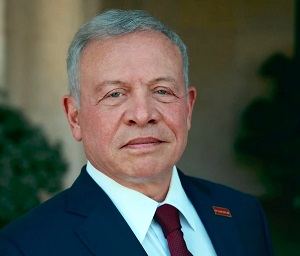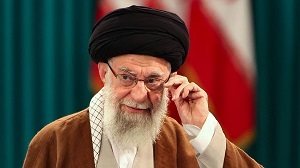Fouad Ajami remains one of the most famous Arab-American political scientists, ever. But his stature has nothing to do with his scholarly contributions or his original insights on the Middle East region.
The late Ajami was, literally, the first vocal Arab Zionist in the history of the U.S. In the age of Edward Said’s book, Orientalism, which — according to Maxime Rodinson — shook the self-confidence of classical Orientalists, Ajami did his best to revive classical Orientalist cliches.
Ajami never amassed the knowledge of classical Orientalists and never attained their erudition and language skills. But he was the native expert who was willing to regurgitate, defiantly, the dogmas of classical Orientalists which can only prove the inferiority of the Arabs and the impossibility of dealing with them peacefully. For that Dick Cheney and Paul Wolfowitz would cite Ajami in their quest to conquer the Arab world.
Ajami emerged as a public figure in the U.S. media and Washington, D.C., chit-chat culture in the 1980s, when the Shiite political threat emerged in Lebanon with the kidnapping of Westerners. Here was a Lebanese Shiite willing to speak about the “atavism” (he loved that word) and backwardness of the community in which he was born.
Ajami died in 2014, and a book of his childhood and boyhood reminiscences was posthumously published last May under the title, When Magic Failed: A Memoir of a Lebanese Childhood, Caught Between East and West.
The book, typically in the case of Ajami, received wide acclaim (in blurbs) from the likes of Leon Wieseltier (the American literary critic who played a role in seeing the book to publication) and from Michael Cook. The book, also typically, received rave reviews and was lauded — by non-experts — as the work of a real expert of the Middle East.
Only in the Orientalist Imagination
The book begins with a story about a woman named Dalal. The story reminds one of the evocative press articles that receive journalism prizes only to have the story later investigated and the prize withdrawn.
He tells a story of a woman that most likely existed in the Orientalist imagination of Ajami, and the story works: it titillates the imagination of the Western bigoted reader who loves to hear tales about the misery of women in India and Pakistan but does not want to hear about the misery and abuse of women in the West.
It is a story that has the credibility of sentences beginning with “and it was rumored” (p. 10) and “the gossips had seen it coming” (p. 13) and “it was noted” (p. 9). I lived my first 23 years of life in Lebanon and my paternal family hailed from South Lebanon and never once did I hear a story of an “honor crime” happening there.
Ajami left Lebanon before he reached the age of 20 and yet he managed to witness an honor crime story that fits a B-Hollywood movie. He tells about a woman who “complained about their tattoos, about their wrinkled and toothless faces, about their prayers, about the ablutions that preceded prayers. Above all, she complained about the smell that clung to the old women” (p. 9).
You read this and wonder: how could Wieseltier, a former literary editor of The New Republic, not be enthusiastic about the publication of a trashy book filled with stereotypes and racist generalizations about Lebanese and Arabs? So let us assume that this woman complained about the prayers by the women of her region, as Ajami claims. Why would she also complain about ablutions? Washing of hands and feet offended her when she also was offended by the “smell” of those women?
Ajami, in the tradition of the racist book, The Arab Mind (described as the neocon bible on Arabs), relies on proverbs to underline the backwardness and deceit of the culture. He cites “kiss the hand that you can’t confront” (p. 9) when he means the proverb “kiss the hand that you can’t confront, and pray that it be broken.”
But this silly game of selecting a few proverbs to malign a culture was long discredited by sociologists like Halim Barakat in his book on contemporary Arab society. Barakat points out that there is always a proverb that runs counter to another proverb.
The land of Fouad Ajami is not a real place with real people; it is a land inhabited by people that Western racists would like to imagine. The book is the fulfillment of a fantasy by a man who despised where he came from and spent a time hoping to distance himself from his birthplace. Ajami’s Zionist conversion (Benjamin Netanyahu in his latest book, Bibi: My Story, cites that conversion) is the ultimate act of a former Arab native who wants badly to be accepted by racist white society in the West.
Academic Star
And Ajami succeeded by any measure. This is a man who left Lebanon to attend East Oregon College (now university) and attained a PhD in political science from the University of Washington, Seattle and would get his first job offer from Princeton University.
While he failed to get tenure at Princeton, he moved to the School of Advanced International Studies at Johns Hopkin University where he obtained instant tenure and directed the Middle East program, which failed under his leadership to attract PhD students (his predecessor, Majid Khadduri, supervised countless PhD dissertations in Islamic and Middle East studies).
Sept. 11, 2006: President George W. Bush and Laura Bush with National Humanities Medal recipient Fouad Ajami, in center. (U.S. National Archives)
Ajami rose quickly in the American establishment, especially in the 1980s when he spoke about the Shiites of Lebanon. But his rise was under the George W. Bush administration, when he advised the government on how best to beat the Arabs. He quickly became a favorite sought-after speaker at Zionist events, and spoke at fundraisers for Israeli settlements in Palestine.
Martin Peretz of The New Republic promoted him and was behind the academic offer that Harvard University submitted to him (he turned the offer down); Mort Zuckerman of U.S. News and World Report was also his champion.
Ajami is perfect for Western governments and societies who are fed up with Muslims and Arabs. He can utter in public what they can only dare say in private. He tells them unequivocally that the Arabic language is “the language of innuendos and hidden meanings and intricate alleyways” (p. 14).
He says the invocation of Allah’s name “confirmed an old mentality” (p. 14). Does that also apply when Americans say “God bless you” to people who sneeze? (Ajami never uses the word God in English, implying that Allah to Westerners means it’s “their” God not “our” God).
He tells you that Arabs can’t figure out dates or names; “they knew epochs and chunks of time and memorable events.” I don’t know what that really means but you can easily detect a racist generalization when you see one. He tells you that Arabs lie and that “tales were part of men’s lives.”
He lived in poverty in South Lebanon and despised the people that were around him. He wanted to be away from them and succeeded as soon as he stepped foot in the U.S. (he would not step foot in Lebanon for nine years after he arrived in America. I have never heard of any Arab student who stayed away that long from his home).
The book is rather ridiculous. He tells you the cliché that Islam “was imposed by the sword” when even learned Orientalists distance themselves from that false claim.
He cites Arabic words even when there are clear Arabic equivalents and often would use the wrong words: he uses the female word for “cripple” in talking about a man (p. 49); he says “tarba” when he means “tarha” (p 56); he talks about his Aunt Wajih, when Wajih is a male name.
Fanciful Tale for Western Readers
But Ajami needs the Arabic words, even if wrongly cited or spelled. His fanciful tales require a measure of local authenticity and a Western reader may appreciate the ring of those words.
But we do learn something about his formation. His father was clearly smuggling arms to the Zionists in Palestine (he pretends that he was not sure whether the arms were destined for Jews or for Arabs but clearly the Palestinians didn’t have the means to recruit a Greek to smuggle arms to them.)
His mother taught her son never to trust Palestinians because “they have no land” (p. 59). Ajami lived true to the teaching of his father and mother, who agreed on nothing else except hostility to the Palestinians, it seems.
Ajami is talking about South Lebanon of the 1950s, and mentions that “only eunuchs and castrated men stayed in the domain of women.” Eunuchs and castrated men in South Lebanon in the 1950s? Is he purposefully confusing the world of Ottoman Sultans with the world he was born to in South Lebanon?
He even claims that people were delivered not only by midwives but by “neighbors and relatives” (p. 81). Imagine knocking on your neighbor’s door and asking him or her to deliver your wife’s baby.
Ajami and his mother moved to a very poor Armenian neighborhood in East Beirut after the divorce of his parents. He lived in a place that had a zinc ceiling and used a bathroom shared with other families. He was quite impoverished and wanted to get out. He read Khalil Gibran, which must have influenced him in weaving the tale of Dalal in the beginning of the book.
I have read all of Ajami’s works. But this book really is the best in explaining his psychological makeup and political evolution. He was not, as some would claim, an Arab nationalist who turned into a Likud Zionist. Even when he was young, he did not care about the cause that stirred his generation of the Arabs. His cause was through and through: how to become a White Westerner and blend in, politically speaking.
As`ad AbuKhalil is a Lebanese-American professor of political science at California State University, Stanislaus. He is the author of the Historical Dictionary of Lebanon (1998), Bin Laden, Islam and America’s New War on Terrorism (2002), The Battle for Saudi Arabia (2004) and ran the popular The Angry Arab blog. He tweets as @asadabukhalil
The views expressed are solely those of the author and may or may not reflect those of Consortium News.
Latest News
-
 King discusses regional developments, ways to restore calm with Arab, world leaders
King discusses regional developments, ways to restore calm with Arab, world leaders
-
 Jordan warns of wider conflict as US-Israeli strikes deepen Iran crisis
Jordan warns of wider conflict as US-Israeli strikes deepen Iran crisis
-
 Iran's supreme leader Khamenei confirmed dead: Trump
Iran's supreme leader Khamenei confirmed dead: Trump
-
 King discusses regional developments with Arab, world leaders
King discusses regional developments with Arab, world leaders
-
 King, Saudi crown prince discuss regional developments
King, Saudi crown prince discuss regional developments